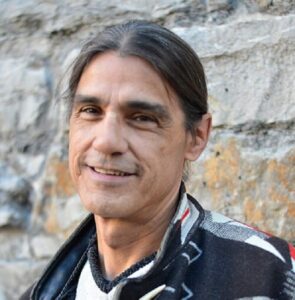Indigenous youth summit opening doors

By PJ Wilson
DOKIS FIRST NATION – Indigenous youth have a lot to offer in the discussion on economic reconciliation.
And they will have two major opportunities this year – in May at Tsuu T’ina Nation in Alberta and September at Chippewas of Rama First Nation in Ontario – to have their voices heard, according to Doug Dokis, Director of the National InSTEM Program at Actua.
The two-day Forward Summit West in Calgary, a joint venture of Actua and Forward Summit, will bring 25 young Indigenous people to the table, primarily secondary school students drawn from the Calgary Board of Education region, while the Forward Summit East in Chippewas of Rama First Nation will focus on undergrads.
“This two-day conference brings together industry, Indigenous communities, and Indigenous businesses to help create partnerships,” Dokis says.
The Calgary summit will focus heavily on the resource development field, and the Chippewas of Rama summit will be more focused on the tech field.
“It’s a chance to bring everyone together, a chance to network and tackle the topics of the day,” such as preservation of the lands, revenue sharing and reconciliation, notes Dokis.
The participants will be identified by Actua and the Calgary Board of Education, and will learn about career opportunities and participate in discussions on economic reconciliation.
Participants will take part in a for-credit land-based STEM (Science, Technology, Engineering and Math) learning camp geared specifically toward Indigenous students. The five-day camp, led by Indigenous cultural practitioners from the Treaty 7 Region, will focus on Indigenous land-based STEM knowledge to help equip Indigenous youth with the skills and confidence necessary for the future workforce.
Both summits will operate under the same model, Dokis said, and use the same format.
He stresses that Indigenous communities have had great success working with industry partners over the years, whether it’s privately owned businesses or federal or provincial agencies.
One of the differences, though, has been that businesses plan and look forward from one quarter to the next. Indigenous communities, he said, plan generationally.
“Indigenous people are not opposed to development. They want to be active, to be meaningful members. Development can’t be carried out at the cost of long-term damage of the land.”
Miki Reeder, president and founder of Forward Summit, believes these types of forums help address and correct the economic gap between Indigenous and non-Indigenous Canadians.
“It’s essential that we create space for Indigenous youth to participate in national conversations about economic reconciliation,” he says. “I am certain the lived experiences, insights, and unique outlooks [of youth delegates] will provide inspiration and hope to all industry partners and conference participants.”
Forward Summit brings together Indigenous and non-Indigenous organizations, senior executives, and Indigenous community leaders.
Actua is the largest STEM youth outreach organization in Canada, representing more than 40 university and college-based members.
“Indigenous people always knew about STEM,” Dokis said. “It’s about the use of inherent Indigenous knowledge.”
Elders and cultural practitioners will, for example, teach participants skills such as harvesting moose or medicines, and provide insight into the science behind those activities.
“Industry is always looking for Indigenous employees,” he said. “[A professional environment] will help bring their ideas and knowledge to industry.”
The summits were introduced in 2019, and despite the COVID-19 pandemic, they have all been well-attended.
“The impact has been huge,” Dokis said.
Each summit has helped identify the next level of opportunities, he says, in building future Indigenous STEM leadership.
Potential employers, Dokis said, “really do look at” participants, helping create “solid, impactful opportunities one kid at a time.”

